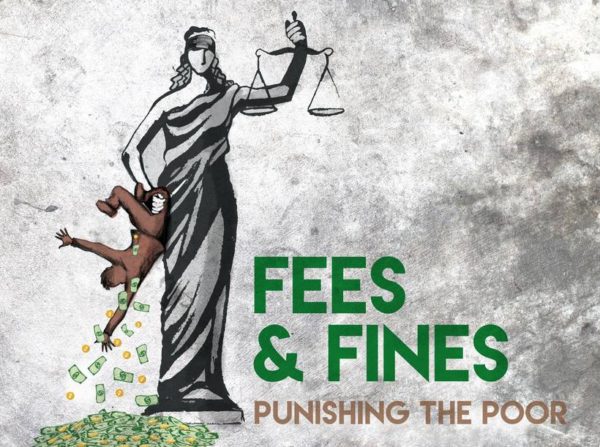

Around 3,400 people die in traffic crashes every day, leading to around 1.25 million deaths globally each year.
One-third of these deaths are caused by speeding, according to the World Health Organization. With road traffic crashes the leading cause of death among young people, some countries are coming up with innovative ways to stop people speeding.
In Finland, speeding fines are linked to salary. The Finns run a “day fine” system that is calculated on the basis of an offender’s daily disposable income – generally their daily salary divided by two.
The more a driver is over the speed limit, the greater the number of day fines they will receive.
This has led to headline-grabbing fines when wealthy drivers have been caught driving very fast.
In 2002, Anssi Vanjoki, a former Nokia director, was ordered to pay a fine of 116,000 euros ($103,600) after being caught driving 75km/h in a 50km/h zone on his motorbike.
And in 2015, Finnish businessman Reima Kuisla was fined 54,000 euro ($62,000) for driving 22km/h over the 50km/h speed limit.
Progressive punishment
Finland isn’t the only country to apply so-called “progressive punishment” to speeding fines.
Switzerland uses a similar system, and currently holds the world record for a speeding ticket. It was handed to a Swedish motorist in 2010 who was caught driving at 290km/h. He was fined 3,600 Swiss francs per day for 300 days – around 1,080,000 Swiss francs ($1,091,340) in total.
The UK introduced tougher speeding penalties in 2017. Drivers can be fined up to 175% of their weekly income, on a sliding scale depending on the severity of the offence. However, the amount is capped at £2,500 ($3,310).
While European countries lead the way for the biggest speeding fines, they also lead in impounding cars, and imprisoning drivers too.
France, Finland, Spain and Germany all have laws that can send speeding repeat offenders to jail.
Beyond fines
While punishment is the primary mechanism most nations use to discourage speeding, some countries are exploring more positive ways to protect road users and encourage responsible driving.
As part of a mission to achieve zero road traffic deaths by 2020, Sweden simultaneously strengthened its driving laws and improved its infrastructure.
Nearly half of those dying on the world’s roads are classified by WHO as “vulnerable road users”: pedestrians, cyclists, and motorcyclists.
With that in mind, Sweden has built more roundabouts, has fewer intersections, and vehicles cannot turn where people cross streets. More pedestrian bridges have been built, and bicycles are separated from oncoming traffic.
In the UK, meanwhile, insurance companies are using technology to encourage more responsible driving.
Telematics systems, otherwise known as black box recorders, can be installed into vehicles to monitor how the car owner drives. They have been targeted at young beginner drivers, the age group that typically faces the highest insurance premiums.
By having a black box installed at no charge, insurers offer discounts on their insurance premiums, either up front or as part of a reward system for good driving.
WHO predicts that globally road traffic crashes will rise as more people in developing economies become car owners. Innovative approaches to encouraging good driving and discouraging speeding will be vital if the newly adopted 2030 Agenda for Sustainable Development is to meet its ambitious target of halving the global number of deaths and injuries from road traffic crashes by 2020.
more recommended stories
 Fentanyl Seizures at Border Continue to Spike, Making San Diego a National Epicenter for Fentanyl Trafficking
Fentanyl Seizures at Border Continue to Spike, Making San Diego a National Epicenter for Fentanyl TraffickingFentanyl Seizures at Border Continue to.
 Utah Man Sentenced for Hate Crime Attack of Three Men
Utah Man Sentenced for Hate Crime Attack of Three MenTuesday, August 8, 2023 A.
 Green Energy Company Biden Hosted At White House Files For Bankruptcy
Green Energy Company Biden Hosted At White House Files For BankruptcyAug 7 (Reuters) – Electric-vehicle parts.
 Former ABC News Reporter Who “Debunked” Pizzagate Pleads Guilty of Possessing Child pδrn
Former ABC News Reporter Who “Debunked” Pizzagate Pleads Guilty of Possessing Child pδrnFriday, July 21, 2023 A former.
 Six Harvard Medical School and an Arkansas mortuary Charged With Trafficking In Stolen Human Remains
Six Harvard Medical School and an Arkansas mortuary Charged With Trafficking In Stolen Human RemainsSCRANTON – The United States.
 Over 300 People Facing Federal Charges For Crimes Committed During Nationwide Demonstrations
Over 300 People Facing Federal Charges For Crimes Committed During Nationwide DemonstrationsThe Department of Justice announced that.
